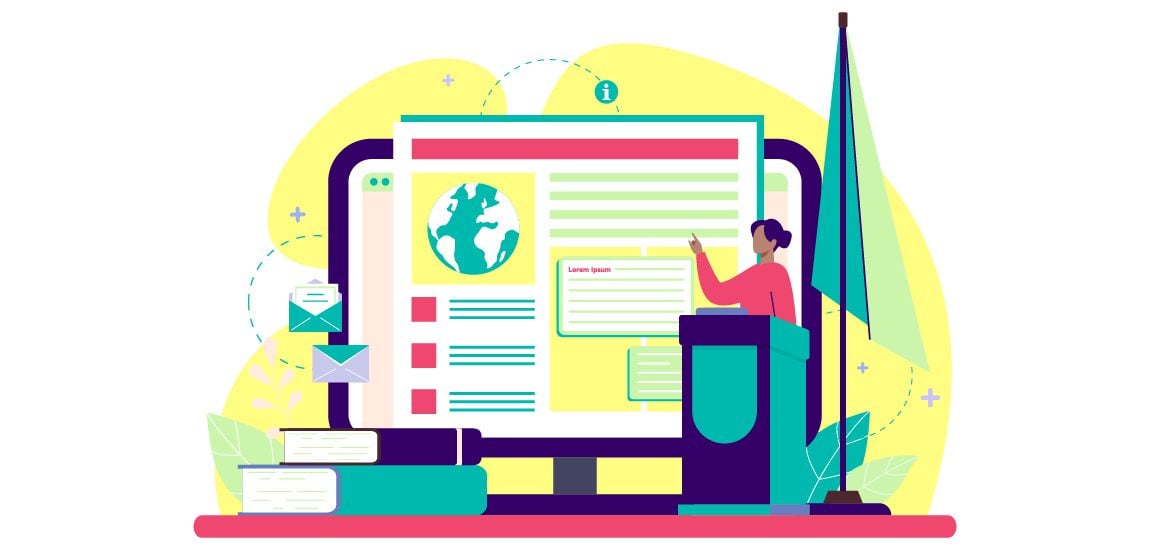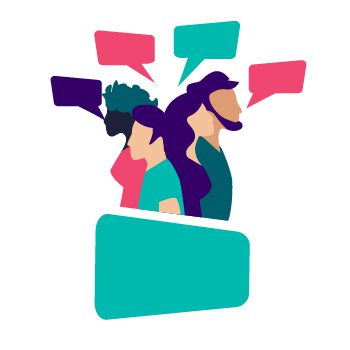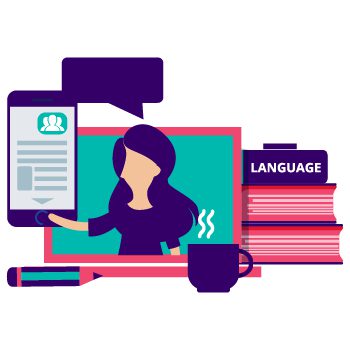
Government Translation Services at What Price?
Why the government needs translation services
As a country with a diverse population and a wide range of languages spoken, the United States federal government often faces the challenge of communicating with its constituents who may not speak English as their native language. Whether it’s a government agency trying to reach out to non-English speaking communities or a federal agency tasked with interpreting legal documents and contracts, the need for professional translation and interpretation services is clear.
Language barriers can make it difficult for government agencies to provide essential social services and assistance to people who are not proficient in English. Legal documents such as contracts and court orders must be translated accurately to ensure all parties can fully understand their rights and obligations. In addition, the federal government often needs to communicate with foreign governments and organizations in their native language, and professional translation services are essential for maintaining international relationships and conducting business effectively.
Providing high-quality government translation services requires subject matter expertise and professional translators skilled in translating complex legal, technical, and scientific terminology. The translation process also involves understanding the context and cultural nuances of the source document, which is critical for ensuring accurate and effective communication.
Despite the importance of translation services for the federal government, cost considerations can pose a challenge. Government agencies need to balance the need for high-quality translation services with budgetary constraints. However, there are successful examples of government translation programs that have found innovative ways to provide quality translation services while keeping costs down.
In summary, government translation services are critical for bridging language barriers and ensuring effective communication between the federal government and its clients. Although there are cost considerations to keep in mind, investing in high-quality translation services is essential for upholding the rights and needs of non-English speaking communities, maintaining international relationships, and ensuring that legal documents and contracts are accurately understood.


The importance of accurate translations for legal and official documents
One of the primary reasons government translation services are needed is the importance of accurate translations of legal and official documents. These documents often contain sensitive and complex information, making it essential to ensure they are accurately translated to avoid misinterpretation or miscommunication.
Language translation is not just about converting words from one language to another; it also involves conveying the document’s intended meaning. This requires a subject matter expert who understands both the source and target languages and the document’s specific context and subject matter.
Failure to accurately translate legal and official documents can result in serious consequences, such as legal disputes, safety concerns, and misunderstandings. It can also undermine the trust and confidence of citizens in their government and its services. Therefore, investing in quality government translation services is crucial for ensuring that legal and official documents are accurately translated, thus ensuring effective communication and understanding among diverse populations.
Read more about legal document translation services.
Challenges in providing translation services for diverse populations
One of the biggest challenges in providing translation services for diverse populations is ensuring accurate translations of government documents. The accuracy of these translations is critical, as they are often required for legal or official purposes. One major challenge is the sheer number of languages spoken by the population. Ensuring that government documents are accurately translated into these languages is a monumental task.
Additionally, the quality of foreign language proficiency among translators varies widely. Not all translators are equally proficient in the languages they translate, which can result in errors or inaccuracies in translations.
Furthermore, dialects and regional variations of languages can pose another challenge. Even when a translator is proficient in a language, they may not be familiar with regional variations in vocabulary, grammar, or pronunciation that can significantly impact the meaning of the text.
Overall, providing accurate translation of government documents for diverse populations requires significant resources and expertise. Given these documents ‘ important legal and official purposes, the government must ensure that their translation services are up to the task.


Cost Considerations for government translation services
As with any government program or service, cost is always a consideration when providing translation services. While accurate translations are crucial for legal and official documents, governments must also balance these services’ costs with other budget priorities.
One of the biggest challenges in determining the cost of government translation services is the sheer diversity of languages and dialects spoken by the populations served. It can be difficult to estimate the resources needed to translate documents into all of these languages, especially when the number of speakers for each language varies greatly. To complicate matters, different languages may require different levels of expertise or certification from translators, further impacting the cost of translation services. Sometimes, a translator may need to be a certified court interpreter or hold other specialized certifications to translate legal or medical documents.
Despite these challenges, many governments have found ways to provide high-quality translation services while keeping costs reasonable. Some governments have partnered with community organizations or language service providers to help translate documents or provide interpreting services at a lower price.
In other cases, governments have used technology to help reduce the cost of translation services. For example, some governments have developed online translation tools that can automatically translate documents or provide basic language support to individuals who are not proficient in the local language.
Ultimately, the cost of government translation services will depend on various factors, including the number of languages being served, the complexity of the translated documents, and the level of expertise needed from translators. However, with careful planning and partnerships with community organizations and language service providers, governments can provide high-quality translation services without breaking the bank.
Examples of successful government translation programs
The Canadian government is committed to providing language services in both official languages, English and French. In addition, they have established a network of interpretation and translation services to support Indigenous languages and language groups across the country.
In the United States, the Department of Health and Human Services has developed a Language Access Plan to ensure that individuals with limited English proficiency have meaningful access to health services and programs. This program has been instrumental in reducing healthcare disparities among minority populations.
Another notable example is the European Union’s Directorate-General for Translation, which provides translation and interpretation services to over 30 EU institutions. Their work is crucial for ensuring clear communication and transparency between EU member states and making EU legislation accessible to citizens across multiple languages.
These successful programs demonstrate the importance of prioritizing accurate translations for legal and official documents and promoting linguistic diversity and inclusion. While these programs can be costly, their benefits for marginalized communities and the overall functioning of government systems justify their expense. As such, governments must continue investing in language services and implementing effective cost-management strategies to ensure equitable access to public services and communication for all individuals, regardless of language or cultural background.
Recommendations for improving government translation services while balancing cost
- Develop a centralized system for managing translation requests and vendors: A centralized system can help streamline the translation process and ensure consistency in quality and terminology across translations.
- Invest in machine translation and post-editing: Machine translation can be cost-effective for translating large volumes of non-critical documents. However, it’s important to ensure that professional translators do post-editing to ensure accuracy.
- Develop partnerships with community organizations and language service providers: Partnerships with community organizations and language service providers can help improve outreach to diverse communities and provide a cost-effective solution for translating documents.
- Train government employees in multilingual communication: Training government employees in multilingual communication can help bridge language gaps and reduce the need for external translation services.
- Prioritize translation of critical documents: Government agencies should prioritize translating essential documents, such as emergency alerts, health information, and legal documents, to ensure that limited translation resources are used efficiently.
By implementing these recommendations, government agencies can improve translation services while balancing cost concerns. Investing in high-quality translation services is essential to ensure all individuals have access to important information regardless of their language proficiency.
Government and Legal Translation Expertise
Translation projects undertaken by a reputable translation company rely on qualified translators to ensure accuracy and reliability, especially when serving government offices. These translators provide human translation expertise that automated tools cannot match, ensuring nuanced understanding and adherence to official terminology and protocols. Government translation solutions demand meticulous attention to detail and cultural sensitivity, ensuring that documents are accurately conveyed in multiple languages for effective communication and compliance with regulatory requirements.
Legal translation requires precision and adherence to specific terminology, often facilitated by translation memories to maintain consistency across documents. When serving entities like the Department of Health and Human Services, human translators play a crucial role in ensuring accuracy and compliance with legal standards. Government translators are tasked with meeting stringent turnaround times to facilitate timely processing and decision-making. Their expertise ensures that legal documents are translated accurately, reflecting the intent and legal nuances required by regulatory frameworks.
Frequently Asked Questions
What are government translation services?
Government translation services refer to translation and interpretation services provided by government agencies or contractors to facilitate communication and ensure language accessibility for individuals or entities interacting with government institutions.
Why are government translation services important?
Government translation services are crucial for ensuring effective communication between government agencies and individuals who may have limited proficiency in the country’s official language. These services help promote inclusivity, access to information, and participation in government processes.
How is the price of government translation services determined?
The cost of government translation services can vary depending on factors such as language pair, the complexity of the content, the urgency of the project, the volume of work, and any additional services required, such as certified translations or interpretation.
Are government translation services more expensive than other translation services?
Government translation services may sometimes be priced differently due to specific requirements, security clearances, or adherence to government regulations. However, the pricing can vary depending on the service provider and the project scope.
Can government translation services include interpretation services as well?
Yes, government translation services often include interpretation services for meetings, hearings, conferences, or other official events where real-time language interpretation is required.


Sorry, the comment form is closed at this time.